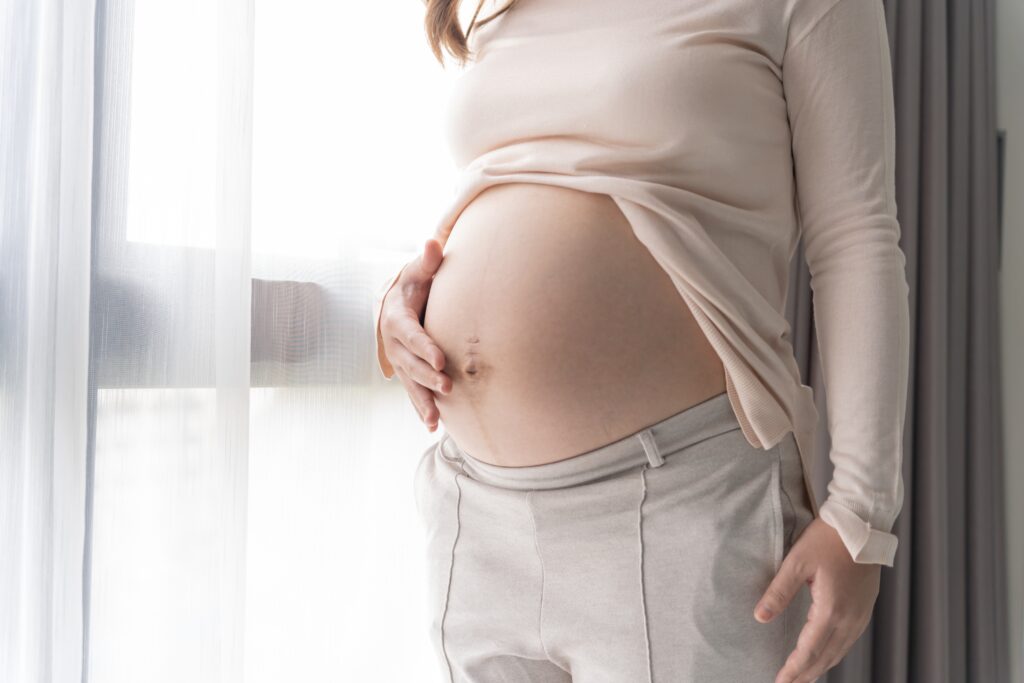Grace Davidson, 36, has made history as the first woman in the UK to give birth following a groundbreaking womb transplant, marking a significant milestone in fertility treatment. Davidson delivered her daughter, Amy Isabel, through a planned caesarean section on February 27 at Queen Charlotte’s and Chelsea Hospital in London.
The achievement has been celebrated by medical professionals as a major breakthrough in reproductive medicine, offering new hope to women facing infertility due to uterine conditions.
A Life-Changing Gift From Her Sister
Davidson was born with Mayer-Rokitansky-Küster-Hauser (MRKH) syndrome, a rare condition where women are born without a uterus or with an underdeveloped one. In 2023, she received a womb transplant from her sister, Amy Purdie, in an eight-hour surgery.
The transplant allowed Davidson to carry her own child, something previously thought impossible for women with her condition. Her daughter’s name, Amy Isabel, is a tribute to both her sister and to Dr. Isabel Quiroga, the surgeon who led the transplant team.
The transplant was part of an extensive fertility treatment plan that included years of medical preparation, careful monitoring, and the use of immunosuppressants to prevent the rejection of the donor womb.
Davidson and her husband, Angus, had previously stored embryos via IVF before the transplant, making the birth of Amy Isabel a reality. The couple called their daughter “the greatest gift we could ever have asked for.”
A Breakthrough in Fertility Treatment
This historic birth is the culmination of 25 years of research spearheaded by Professor Richard Smith, clinical lead at Womb Transplant UK and a gynaecological surgeon at Imperial College Healthcare NHS Trust. Prof. Smith described the moment as “unbelievable” and “astonishing,” reflecting the significance of the achievement.
Davidson’s case is one of several womb transplants conducted in the UK, following a successful procedure carried out in 2021. Doctors have also completed three womb transplants using deceased donors, and they hope to see more successful births in the near future. Currently, about 10 women are in the approval process for the £25,000 procedure, with hundreds of others expressing interest in the life-changing opportunity.
Worldwide, more than 100 womb transplants have been performed, resulting in at least 50 successful births. The first successful transplant occurred in Sweden in 2014, with the birth of a healthy baby boy named Vincent.
A New Era for Women’s Reproductive Health
The success of Davidson’s womb transplant has paved the way for further advancements in fertility treatment. Doctors and researchers are optimistic that womb transplants could become a viable option for women with certain types of infertility, offering them the possibility of carrying and giving birth to their own biological children.
Davidson expressed her hopes for future pregnancies, saying the experience has been “life-changing.” Her sister, Amy Purdie, who made the ultimate sacrifice by donating her womb, shared her joy at watching her sister become a mother. “It was worth every moment,” Purdie said.
As the field of womb transplants continues to evolve, it may offer new hope for women who once thought biological motherhood was beyond their reach.
